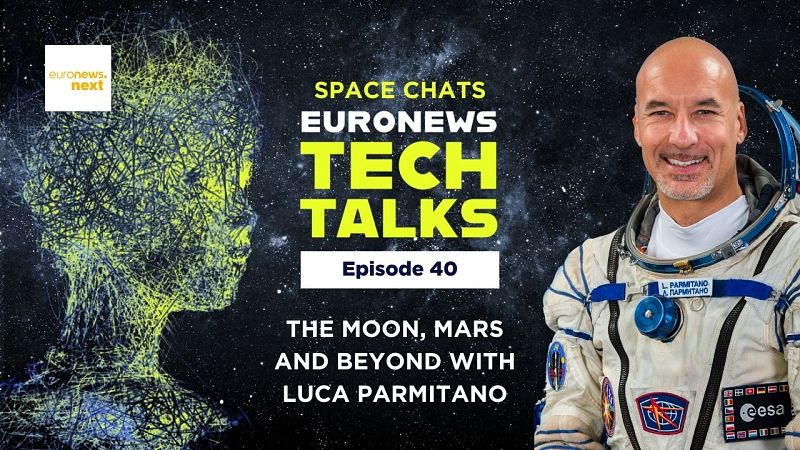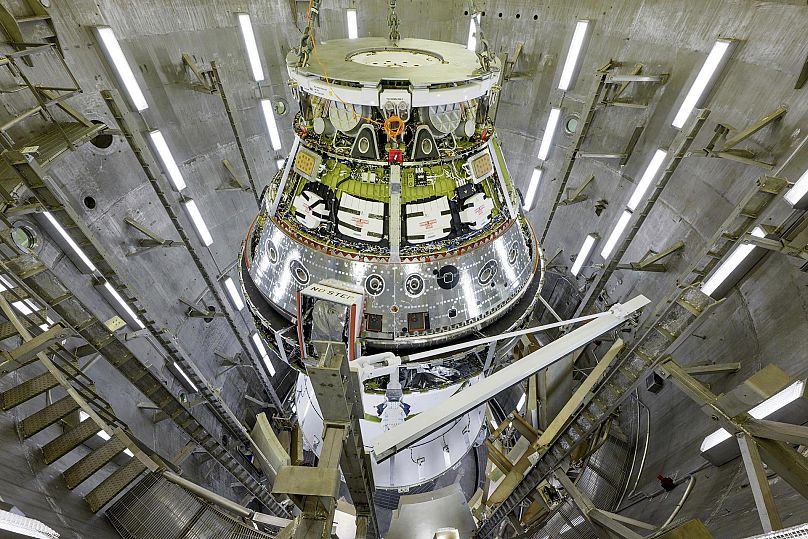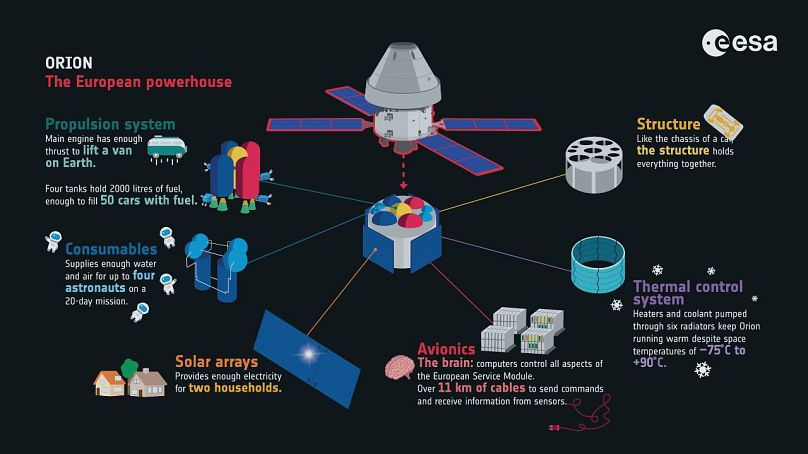The future of space exploration with ESA astronaut Luca Parmitano | Euronews Tech Talks

NASA Administrator Bill Nelson announced a delay in the Artemis II mission, which aims to send four astronauts around the Moon and back to Earth, on December 5.
Originally scheduled for September this year, Artemis II has been postponed due to technical issues with the heat shield of the Orion capsule, which is critical to bringing the crew back to Earth.
Artemis II is the second phase of NASA's Artemis programme, which first started in December 2017. This mission aims to bring humans back to the Moon, a place that NASA has not been since Apollo 17 in 1972.
What will this latest Artemis mission entail, what role does Europe play in it, and how does this mission fit into today’s space exploration landscape?
Euronews Tech Talks put these questions to the European Space Agency (ESA)'s astronaut Luca Parmitano, former commander of the International Space Station (ISS) who is now serving as the liaison officer between the European Astronaut Centre and the Johnson Space Centre in Houston, United States.
The Artemis mission
In November 2022, NASA launched Artemis I, the first mission of the Artemis programme designed to pave the way for human spaceflight back to the Moon.
"Artemis I was launched on the Space Launch System, with the Orion spacecraft, full of instruments and experiments to make sure we could go around the Moon and test the spacecraft," Parmitano explained.
NASA's uncrewed Artemis I was a test flight. It lasted 25 days and was largely successful.
Once the technical issues with the Orion's heat shield are solved, a crew of four astronauts will embark on Artemis II, travelling around the Moon.
To enable a future Moon landing, the next step in the mission involves building the Lunar Gateway, a space station about one-third the size of the ISS, but this time built around the Moon.
"It will be our destination, from which we will go to the surface of the Moon," Parmitano explained.
To reach the surface of the Moon, astronauts will use a lunar lander, connecting the natural satellite to the Gateway.
Using this lander, Parmitano stressed that astronauts will be able to travel from the Earth to the Gateway and then from the Gateway to the surface of the Moon in a sustainable way.
Thanks to this complex structure, astronauts seek to explore a new part of the Moon.
"We expect water to be in solid form in some of the areas that are constantly in shade, and we intend to explore the South Pole to verify this hypothesis," he explained.
Europe's role in the Artemis mission
In order to succeed in this mission, NASA has been working in partnership with ESA.
ESA's central contribution to the Artemis mission is the European Service Module, a cylindrical unit providing electricity, water, oxygen and nitrogen while keeping the Orion's spacecraft at the right temperature.
"You cannot live in the spacecraft without an engine, without a life support system, without electricity to power the engine and without computers and navigation systems, and all that is part of the European Service Module," Parmitano explained.
"Building a space station around the Moon has been one of Europe's unique capabilities".
Beyond the Moon
The Moon, however, is not the only destination astronauts are aiming for.
During his inaugural address on January 20, US President Donald Trump pledged to send American astronauts to Mars.
Parmitano seemed excited about the prospect, but he advocated for a more gradual approach to the adventure.
"I think eventually we’ll get there, and the sooner we talk about it the better it is, but I like the incremental approach of the European Space Agency [ESA]. We take one step at a time," he said.
"A system to fly to the Moon and a system to fly to Mars are exponentially more complex, it’s a completely different deal".
To back his scepticism, Parmitano pointed out that while the International Space Station is 400 km from the Earth and the Moon is 400,000 km, Mars is much more distant, as it is 400,000,000 km away.
Leaving aside the space agencies' objectives for the future, what does Parmitano wish for his professional future?
Find out the answer in this episode of our podcast Euronews Tech Talks.
Today









